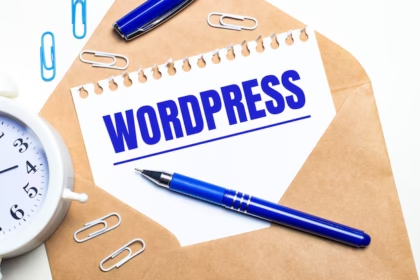
As we journey further into the digital age, the landscape of web development continues to evolve at an unprecedented pace. The advent of artificial intelligence (AI) has revolutionized various aspects of our lives, including how we create and manage websites. AI-powered tools and platforms now offer unparalleled efficiency, customization, and user experiences, prompting many to question the relevance of traditional content management systems like WordPress. This brings us to a pivotal question: Is WordPress still worth it in 2024 amid the rise of AI?
For nearly two decades, WordPress has been the cornerstone of web development, powering millions of websites worldwide. Its dominance in the market is a testament to its flexibility, robustness, and extensive community support. From personal blogs and small business sites to large-scale enterprise portals and e-commerce platforms, WordPress has proven itself as a versatile and reliable solution. However, the rapid advancements in AI technology present a new challenge, offering alternative solutions that promise to simplify and enhance the website creation process.
AI-powered website builders and content management systems are designed to cater to a growing demand for ease of use, speed, and personalization. These platforms leverage machine learning algorithms to automate design, optimize content, and provide real-time analytics, reducing the need for manual intervention and technical expertise. As a result, even those with limited web development knowledge can create professional and responsive websites within minutes. This shift towards AI-driven solutions has raised concerns about the future of traditional platforms like WordPress.
In this comprehensive blog post, we will delve into the debate surrounding WordPress’s viability in 2024. We will explore the strengths and weaknesses of WordPress, considering its established ecosystem, customization capabilities, and SEO-friendly features. Additionally, we will examine the rising influence of AI in web development, highlighting the benefits and drawbacks of AI-powered alternatives. By comparing these two approaches, we aim to provide a balanced perspective, helping you make an informed decision about whether WordPress remains a worthy choice for your web development needs.
Throughout this discussion, we will draw upon real-world examples of successful WordPress websites and AI-driven platforms, showcasing their respective advantages and limitations. We will also consider the evolving needs of modern businesses and individuals, assessing how each option aligns with these demands. Ultimately, our goal is to determine whether WordPress can continue to thrive in an era increasingly dominated by AI, or if it is time to embrace the new wave of intelligent web development solutions.
Join us as we navigate this intricate landscape, weighing the merits of WordPress against the innovative potential of AI. By the end of this blog post, you will have a clearer understanding of the current web development ecosystem and the role that WordPress can play in shaping the future of online presence. Whether you are a seasoned developer, a business owner, or someone just starting your web journey, this exploration will provide valuable insights to guide your decision-making process in 2024 and beyond.
The Case for WordPress in 2024
1. Established Ecosystem and Community
WordPress boasts a vast ecosystem that has been built and refined over nearly two decades. With over 40% of all websites powered by WordPress, it enjoys a strong community of developers, designers, and users. This extensive network translates into a wealth of plugins, themes, tutorials, and support forums, making it a reliable and well-supported platform.
2. Flexibility and Customization
One of WordPress’s most significant advantages is its flexibility. Users can create virtually any type of website, from blogs and e-commerce stores to membership sites and portfolios. The availability of thousands of plugins and themes allows for extensive customization, enabling users to tailor their sites to specific needs without requiring advanced coding skills.
3. Cost-Effective Solution
WordPress is an open-source platform, meaning it’s free to use. While premium themes and plugins may come at a cost, the overall expense remains lower compared to custom-built solutions. Additionally, the abundance of free resources and community support helps keep maintenance costs down.
4. SEO-Friendly
WordPress is inherently SEO-friendly, with features such as clean permalinks, customizable meta tags, and responsive design. Plugins like Yoast SEO further enhance its capabilities, making it easier for users to optimize their sites for search engines and improve their online visibility.
5. Continuous Improvement and Innovation
The WordPress development team consistently updates the platform, introducing new features and security enhancements. This ongoing commitment to improvement ensures that WordPress remains relevant and competitive in the ever-changing digital landscape.
Example: TechCrunch
TechCrunch, a leading technology news website, uses WordPress to manage its extensive content. The platform’s flexibility and robust content management system enable TechCrunch to publish a high volume of articles while maintaining a user-friendly interface and seamless performance.
The Case Against WordPress in 2024
1. Rising AI-Powered Alternatives
AI-driven website builders like Wix ADI, Bookmark, and Zyro are gaining traction due to their ability to create customized websites quickly and effortlessly. These platforms leverage AI to analyze user preferences and generate tailored designs, often requiring minimal input from the user. This efficiency can be particularly appealing for small businesses and individuals who need a professional online presence without investing significant time or resources.
2. Learning Curve and Maintenance
Despite its user-friendly interface, WordPress can still present a learning curve for beginners. Managing updates, backups, security, and troubleshooting can be daunting for non-technical users. In contrast, AI-powered builders often handle these aspects automatically, reducing the need for ongoing maintenance.
3. Performance and Speed
While WordPress offers extensive customization, excessive use of plugins and themes can lead to performance issues and slower loading times. AI-driven platforms often optimize performance automatically, ensuring faster and more responsive websites.
4. Security Concerns
As a widely used platform, WordPress is a common target for hackers. Although the core software is secure, vulnerabilities can arise from outdated plugins and themes. AI-powered alternatives typically include built-in security features and automatic updates, providing a more secure environment.
Example: Wix ADI
Wix ADI (Artificial Design Intelligence) enables users to create websites by answering a few simple questions. The AI analyzes the responses and generates a unique site with relevant content and design elements. This approach streamlines the website creation process and eliminates the need for manual customization.
Balancing the Pros and Cons
WordPress for Advanced Customization and Control
For users who require advanced customization and full control over their website, WordPress remains a strong contender. Its extensive ecosystem and flexibility make it suitable for complex projects that demand specific features and functionalities. Moreover, the continuous development and strong community support ensure that WordPress can adapt to emerging trends and technologies.
AI-Powered Builders for Simplicity and Efficiency
On the other hand, AI-powered website builders excel in simplicity and efficiency. They are ideal for users who need a quick, professional-looking website without delving into the technical aspects of web development. These platforms handle design, optimization, and maintenance automatically, allowing users to focus on their core business activities.
Hybrid Approach: The Best of Both Worlds
A hybrid approach can also be considered, where WordPress is used in conjunction with AI-powered tools. For instance, AI plugins can enhance WordPress sites by providing automated content generation, SEO optimization, and personalized user experiences. This combination leverages the strengths of both platforms, offering a balanced solution that meets diverse needs.
Final Thoughts
In 2024, WordPress continues to be a viable and valuable platform for web development, particularly for users who require extensive customization and control. However, the rise of AI-powered website builders presents a compelling alternative for those seeking simplicity and efficiency. Ultimately, the choice between WordPress and AI-driven solutions depends on individual needs, preferences, and technical expertise. By carefully considering the strengths and weaknesses of each option, users can make informed decisions that align with their goals and resources.



